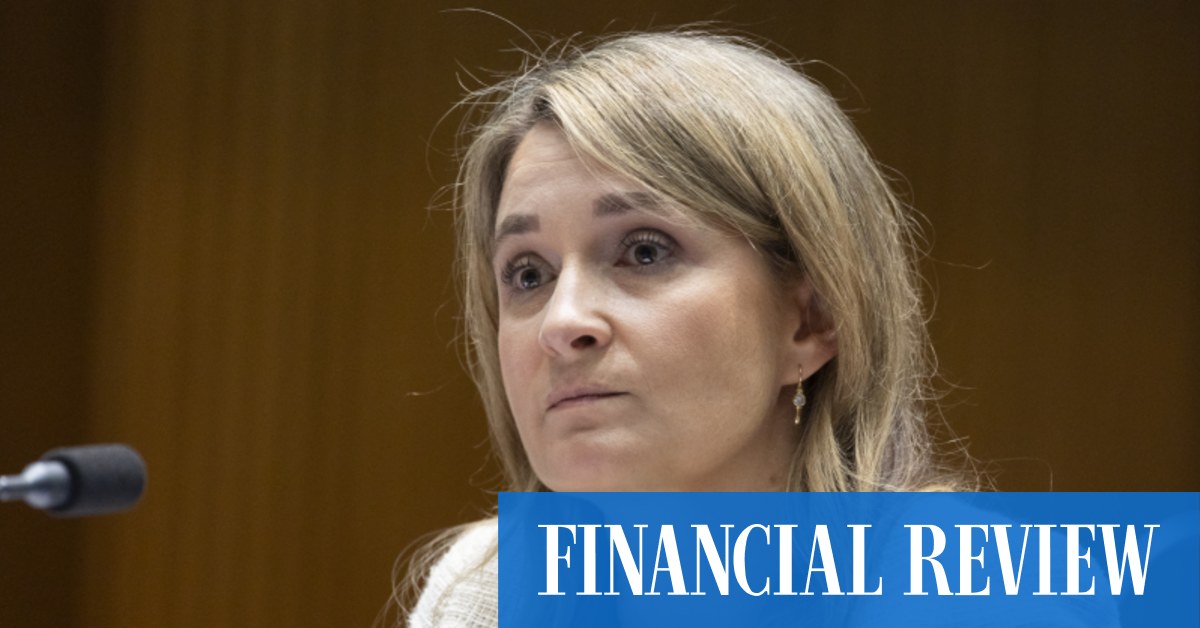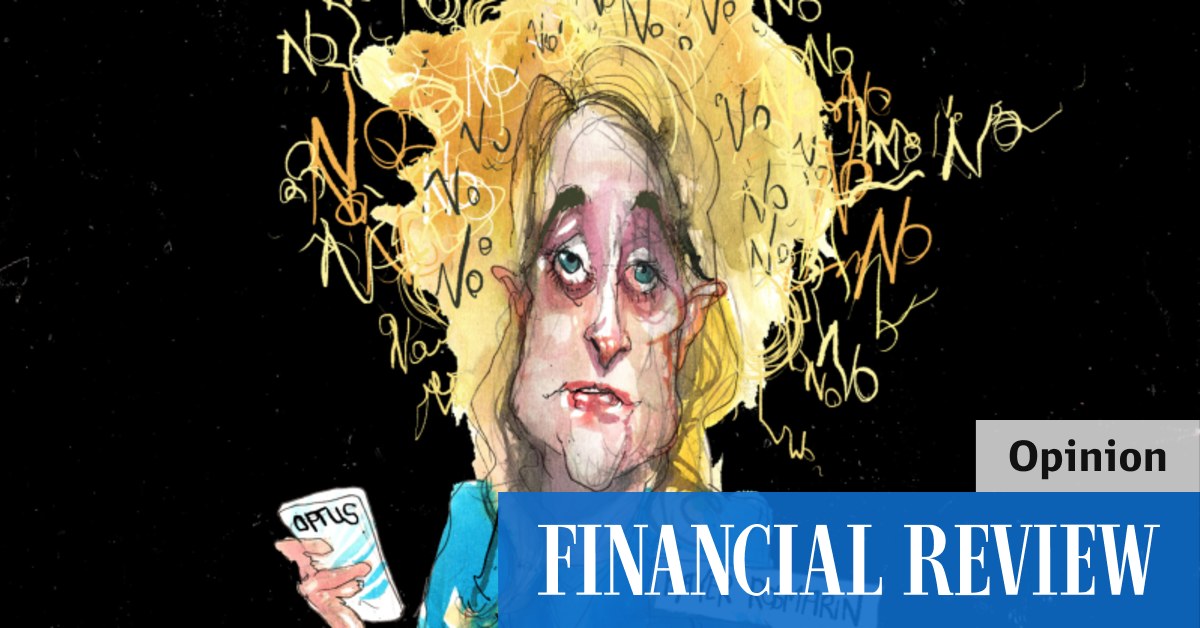“My focus is on the team, the customers, and the community. My focus is not on myself. I haven’t seen any reports today. I’ve been preparing for being here,” she told the inquiry.
A submission published shortly before the hearing began gave Optus’ clearest explanation yet for the network failure that began at 4.05am on November 8.
It was caused when about 90 provider edge Cisco routers (which connect internal and external networks) shut themselves off to avoid overloading with information, following a software upgrade at one of parent company Singtel’s internet exchanges (known as STiX.)
Ms Bayer Rosmarin said a Singtel statement in which it said it had not caused the Optus outage had been seeking to clarify a misunderstanding of the problem that had resulted from interpretations of media reports. While Singtel’s software update had triggered the problem, it was not its cause.
“The reality is that our network should have coped with this change, but on this occasion it did not,” she said.
Greens senator Sarah Hanson-Young said Optus’ and Singtel’s explanations of the root cause appeared to be in dispute. “We’re not sure who to believe … It’s time that someone got the story straight,” she said.
Disaster planning
One of the most damaging revelations of the hearing came when Mr Kanagaratnam admitted the telco had never held a crisis planning simulation for an outage like the one that occurred.
He said the level of redundancy built into the system had led the company to believe it was unlikely everything would go down at once in the manner it did.
“We did do a network outage exercise in October, but it wasn’t for a full outage on the network,” Mr Kanagaratnam said. “We didn’t have a plan in place for that specific scale of outage. I think it was unexpected.”
After the hearing, an Optus spokeswoman tried to reframe Mr Kanagaratnam’s answer as referring to Optus having never simulated the specific technical failure that occurred, and saying it had simulated whole-of-network outages.
“Optus has comprehensive risk management plans in place and prepares and tests an extensive range of risk scenarios on a regular basis. These plans do also consider a mass outage scenario,” the spokeswoman said.
‘A strange coincidence’
At the hearing, Ms Bayer Rosmarin initially defended Optus’ public communications during the outage, running through a timeline of social media posts and interviews she conducted during the day.
She sought to explain why her first media appearance was six hours after the outage occurred by saying she was more concerned with getting the network running again.
She said Optus was worried by similarities between the network failure and a major data breach a year earlier, which caused it to worry that another cyberattack was involved.
“When we had the cyber incident, it was the last time the Singtel board was in town, and they were in town again … which was a strange coincidence,” she said.
Under criticism from senators, including Labor’s Karen Grogan, who said Optus had failed to show compassion and empathy for its customers, Ms Bayer Rosmarin admitted fault.
“I do want to just make sure that the people understand that there was no intention from Optus not to be communicating. We felt our messages were out there for the customers,” she said.
Compensation question
Ms Bayer Rosmarin pushed back against claims Optus should stump up for customer compensation and be fined for the failure to connect some triple-zero calls.
She said Optus had done welfare checks on everyone who had tried to make triple-zero calls and that they were all OK.
“We absolutely believe that the triple-zero system should have worked … We don’t manage the triple-zero system. It’s a very complex system that involves all the carriers,” Ms Bayer Rosmarin said.
“If someone else has an outage, we should be picking up some of the calls, that’s how the system should work.”
Senator Hanson-Young accused the Optus CEO of trying to dodge accountability and “share the blame around”.
“I think you’re just going to have to cough up, accept responsibility, apologise and cop a penalty,” Senator Hanson-Young said.
Requiring Optus to pay money to all of its customers for the outage would set a precedent for all other providers of critical infrastructure, such as energy providers, which currently do not pay out if they have outages that affect businesses, she said.
So far 8500 customers have made representations for compensation totalling about $430,000, and the company has paid out $36,000.


